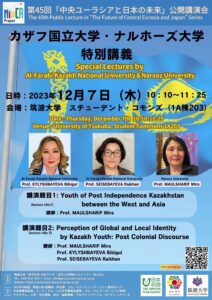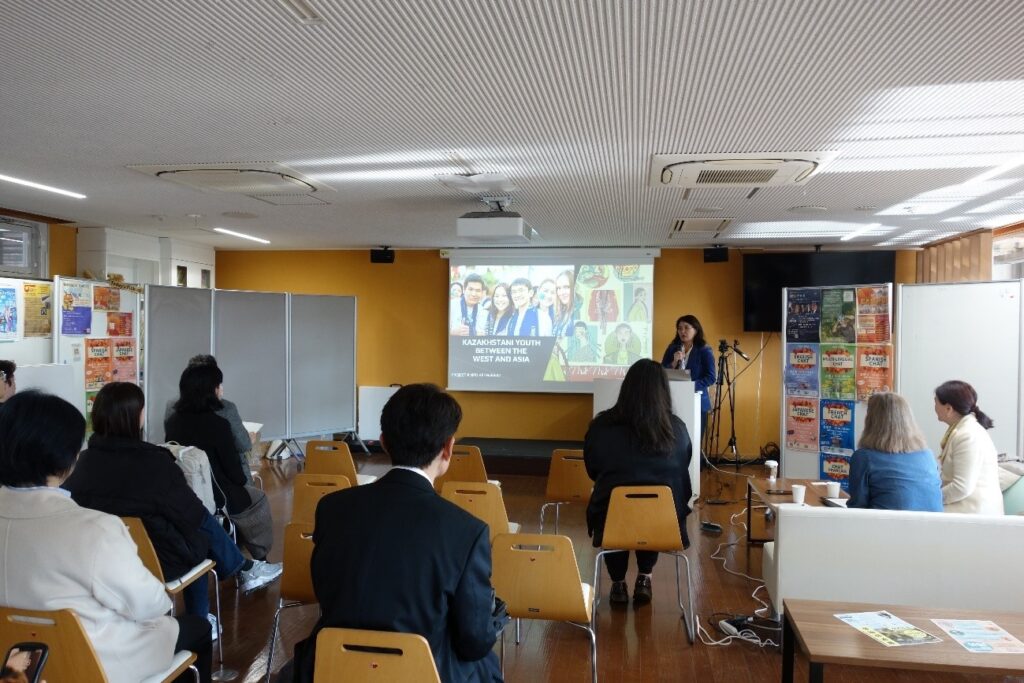On Thursday, December 7th, 2023, the Nippon Foundation Central Asia-Japan Human Resource Development Project (NipCA) organized the 45th event in “The Future of Central Eurasia and Japan” public lecture series.

For this occasion, we invited Professor Bibigul KYLYSHBAYEVA and Professor Raikhan SEISEBAYEVA of Al-Farabi Kazakh National University (Kazakhstan) and Professor Mira MAULSHARIF of Narxoz University (Kazakhstan) to speak on the identity of Kazakhstani youth.
The event started with the first presentation by Professor Maulsharif, Associate Professor of Sociology at Narxoz University (Kazakhstan), who delivered a lecture titled “Youth of Post-independence Kazakhstan: Between the West and Asia.” Prof. Maulsharif began her talk by providing a quick overview of the history of Kazakhstan and its formation as an independent nation. She highlighted the main socio-cultural, economic, and demographic features of the country and explained that its complex history contributes to the unique identity of Kazakhstani youth, which shares certain similarities with both Western and Asian cultures. Professor Maulsharif’s presentation touched upon various aspects of Kazakhstani identity, including daily practices, music, religion, education, marriage, volunteering, and others.
The first lecture was followed by a talk by Professor Bibigul Kylyshbayeva and Professor Raikhan Seisebayeva of Al-Farabi Kazakh National University (Kazakhstan), who presented on “Perception of Global and Local Identity by Kazakh Youth: Post-colonial Discourse.” Professor Seisebayeva, the speaker, started the lecture by explaining that the main goal of their upcoming research project is to assess youth’s perception of globalization and glocalization patterns. Professor Seisebayeva gave a quick overview of Kazakhstan’s development phases and the main ideas surrounding national identity construction in the country.
The lecture was followed by a Q&A session where the audience had the opportunity to ask a wide range of questions about the brain drain problem and an identity crisis that youth studying abroad might experience upon returning to Kazakhstan. The speakers provided insightful answers to all questions and expressed their hope for future collaborations with Japanese institutions.




